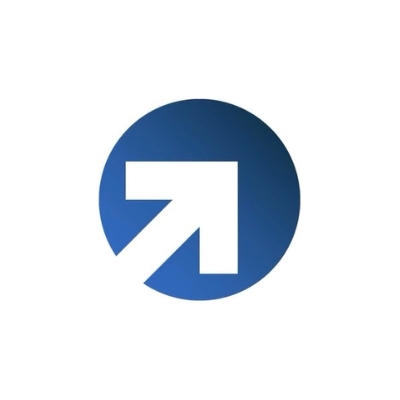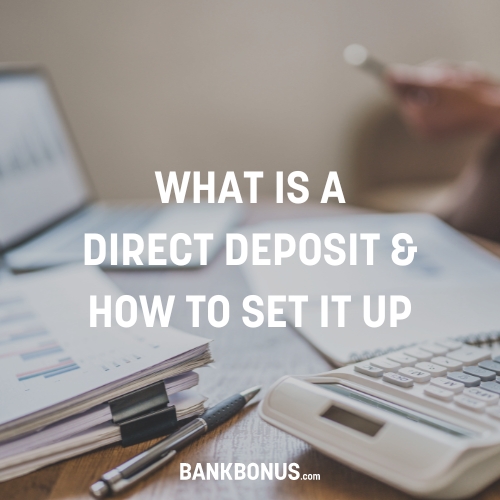Financial security starts with saving money, which isn’t always easy. And when it comes to saving money, there are a few things that you should consider, like choosing where to save your money, the amount of money you want to save, and whether having easy access is important to you.
Most banks and credit unions offer savings accounts, money market accounts, and CDs, and I often get asked which account is better. The answer is that neither is better than the other. They each serve different purposes and can help you achieve various financial goals in different ways.
To help you on your journey to saving money, this article will compare the differences between Money Market Accounts vs. Savings Accounts vs. CDs (Certificates of Deposit).
Savings Account vs MMA vs CD
While each of these accounts help you save money, they do so in very different ways. Some features are common to each type of account, while other features tend to be very different.
Looking at these differences can help you understand which type of account will best help you achieve your savings goals.
Let’s look at this overview comparison chart to see the similarities and differences between savings accounts, MMAs, and CDs:
| Feature | Savings Account | Money Market Account | CD |
|---|---|---|---|
| Minimum Balance | Lower or no minimum | Higher minimum | Higher minimum |
| APY | Lower interest rates | Lower interest rates | Higher interest rates |
| Liquidity | Higher | Higher | Lower |
| FDIC-insured | Yes | Yes | Yes |
In the next sections, we will be looking at each type of account in detail, including who it is for, its pros and cons, and then look at some of the best accounts available today.
What Are Savings Accounts?
Savings accounts are bank accounts meant to hold money for more extended period in order to help you save money. Because of this, there are restrictions in place to how many withdrawals you can make per month.
Savings accounts also tend to pay less interest than MMAs or CDs. In most cases, there are no minimum balance requirements in place. This can be one less thing to worry about, especially if you’re starting to save. You can also withdraw money from the account at any time.
To get better rates, look for high-yield savings accounts, offering higher than average interest rates that in some cases surpass even those provided by money market accounts.
Regulation D
Regulation D is a regulation put in place by the Federal Reserve. It applies to savings accounts, as well as CDs and money market accounts. It states that an account holder is limited to 6 withdrawals or transfers out of their account every month.
If you place more than six withdrawals, you might be charged a fee. Different credit unions and banks tend to have slightly different rules. When in doubt, check with the financial institution where you bank.
Who are Savings Accounts for?
Savings accounts are ideal for anyone looking for a secure way to save money. Since most banks and credit unions do not ask for a minimum balance, they are best for those who are just starting to save money. The trade-off here is that the interest rate is going to be on the low-side. Even so, it can be a significant first step towards a healthier financial future.
Savings accounts are insured by the FDIC up to $250,000. This means that should something happen to the bank, you will still withdraw your money up to the insured amount. Consider opening another account should your balance get higher than the insured amount to keep yourself secure.
It’s also worth considering that online savings accounts tend to offer higher interest rates than traditional savings accounts.
Pros and Cons of Savings Accounts
Just like any other type of bank account, savings accounts have their pros and cons. Of course, these depend on your financial situation and what you are looking to achieve with the account. It’s helpful to know what you’ll have to give up and what you will get in return when choosing this type of bank account.
Pros:
- Accounts are FDIC/NCUSIF insured – Savings accounts are insured up to $250,000, keeping your money safe.
- Money can be withdrawn easily – Withdrawing money from a Savings account is generally easy and hassle-free.
- There is no minimum balance to maintain – Most banks and credit unions do not impose a minimum balance requirement for this type of bank account.
Cons:
- The interest rate offered is on the low side – Savings accounts tend to have lower interest rates, but this is not always the case.
- Limited withdrawals compared to checking accounts – Regulation D limits the number of withdrawals from this type of account to 6 a month.
Best Savings Accounts
While most banks and credit unions offer savings accounts, some tend to offer better deals than others. Of course, you can always find a bank promotion and get some free cash or better APY rates, but these are still some of the best savings accounts you can sign up for today.
1. Chime
Chime is an online bank with no physical branches. Their Savings Account offers one of the highest interest rates around. There are no credit check requirements to open an account. Chime does not charge any fees and does not require a minimum balance in the account.
Read our full Chime Bank review
2. CIT Bank
CIT Savings Builder account offers an APY of up to 1.00% if you meet specific requirements set by the bank. These are as follows; either open an account with $100 and deposit $100 or more every month or open an account with $25,000 or more. The rate compounds daily, and there are no account maintenance fees.
3. Discover® Bank
Discover® Bank is offering Saving Accounts with an APY of 0%. There are no balance requirements on the account, and the bank does not charge any maintenance fees either. The interest compounds daily, helping you grow your account that much faster.
Read our full Discover® Bank Review
Here are some of the best savings and money market promotions available today.
What Are Money Market Accounts?
Essentially, a money market account is a type of savings account, just with extra features. Think of money markets accounts as hybrid accounts that combine key features of savings accounts and checking accounts into one account.
Money market accounts, also known as MMA for short or Money Market Deposit Accounts (MMDA), are a particular type of bank account used for saving money. Unlike a regular savings account, they typically have a minimum balance requirement. In return, MMAs offer higher interest rates, although this isn’t always the case.
Most MMAs come with a debit card and the ability to issue checks. The FDIC also insures them. Credit Union MMA accounts, on the other hand, are insured by the NCUA. It’s always better to confirm this with your financial institution of choice before opening an account to ensure you’re protected.
One thing to keep in mind is that money market accounts are not Money Market Funds. These two accounts are entirely different from each other. Money Market Funds are there to hold securities rather than savings. These securities can include financial assets such as stocks and bonds. There's no FDIC Insurance for Money Market Funds, making them much riskier.
Generally, MMAs are very safe and come with very low risk. This makes them an excellent way to build up your savings and have easy access to your money whenever you need it.
Who are Money Market Accounts for?
Because money market accounts generally have a minimum balance requirement, unlike traditional savings accounts, you need to have some money set aside already. So if you’re beginning your savings journey or are in your overdraft, an MMA might not be the right type of account for you.
In most cases, the minimum balance requirement will range from $500 to $25,000, depending on the financial institution you choose. Some accounts will also require you to deposit a minimum amount of money to open the account or to enjoy a more favorable interest rate on your money.
While a $500 account minimum might not sound like a lot, do keep in mind that you may be charged a fee if you fail to keep the account balance above the required amount. This can put a dent into your savings effort, so it’s essential to keep it in mind.
Money market accounts typically come with an ATM card and may allow you to write checks against the account. If check writing is what you want, then best to check whether your bank offers this feature before signing up.
Pros and Cons of Money Market Accounts
Like everything else, MMAs have their own pros and cons. The pros and cons of this type of account will largely depend on your financial situation and goals. Either way, understanding the benefits and potential problems can help you make a smarter and more informed decision about your financial wellbeing.
Pros:
- High-Interest rates – Generally speaking, MMAs tend to have higher interest rates, although this is not always the case.
- Insured by the FDIC or NCUSIF – The FDIC also insures MMAs if the account is held with a bank or NCUSIF if it is held with a credit union.
- Highly liquid – You can withdraw cash from your account at any time, with some accounts even including a debit card.
Cons:
- A limited number of monthly transactions – Since MMAs fall under Regulation 9, you might experience some limitations when it comes to withdrawing money (more on this later)
- High minimum balance – MMAs generally have a minimum balance requirement with the amount varying from one financial institution to another.
Best Money Market Accounts
We will now look at some of the best money market accounts available today. Most banks and credit unions have eligibility requirements that you’ll need to meet before opening an account.
These requirements will change from one financial institution to the next. Take the time to find the applicable requirements when applying for an account.
1. UFB Direct
UFB Direct offers MMAs with a high yield APY. They’ve removed the $25,000 minimum opening deposit and no longer charge monthly maintenance fees.
Read our full UFB Direct review
2. Discover® Bank
Discover® Bank’s Money Market accounts include 0 fees for withdrawing from more than 60,000 ATMs nationwide and no monthly fees. There is a minimum account balance requirement of $2,500 with an APY of 0%. To earn the higher tier rate you’ll need a balance of at least $100,000; however, there’s not much of a drop for those that have less funds in their account.
Read our full Discover® Bank Review
3. CIT Bank
CIT Bank is offering a Money Market Account with a low account minimum requirement of only $100. The APY rate is set at 1.55%, and it’s compounded daily and paid out every month. This can help you maximize what you earn from your saved money.
What are Certificates of Deposit (CDs)?
CDs, short for Certificates of Deposit, offer a more structured way to save money because CDs are savings that must be held for a set amount of time.
This amount of time is known as the term, and it can range anywhere from 6 months to 5 years or more. Once the term passes, the CD reaches what is referred to as the maturity date and when you will get your money back along with interest accumulated over the CD’s term.
CD rates come in two types: fixed-rate CDs and variable-rate CDs.
Fixed-rate CDs offer a fixed APY (Annual Percentage Yield). The interest rate offered will remain unchanged over the term, helping you understand how much money you will receive come maturity date and everything is paid out.
On the other hand, variable-rate CDs feature an interest rate that can vary over the CD’s term. The bank or credit union will explain the rules by which the APY rate can change, which means it’s a little bit riskier since the rate can go up or down.
Even so, since CDs are held for an agreed-upon term, they tend to feature APY rates that are higher than those offered by money market accounts. This is one of the main benefits CDs have to offer. On the flip side, should you wish to make an early withdrawal, you will most likely face early withdrawal charges.
CDs are also insured by the FDIC (if held with a bank) or by the NCUA (if held with a credit union). It is always advisable to confirm this with the financial institution of your choice before opening the account.
Who is a Certificate of Deposit right for?
Because CDs are held for a definite term, they are more suitable for long-term savers who can safely put that money aside, knowing that they will not need it for the duration of the term. This means that if you’re new to saving money, CDs might not be the right type of account for you, at least at the very beginning of the journey,
On the other hand, if you’ve been saving for some time or have come across a windfall, CDs can offer many benefits. Not only will it be less tempting to spend the money, but you can also earn quite a bit of interest on the money without risking too much.
In most cases, CDs also have a minimum deposit amount. These minimum deposit amounts can sometimes be expensive to a new saver, but shopping around can help you find the best deal.
Pros and Cons of CDs
Just like money market accounts, CDs also have their own pros and cons. Of course, these depend on your goals and financial means at the time of opening the account. Do keep in mind that if you cannot open a CD now, it does not mean you will not open one in the future.
By understanding what this type of bank account offers, you can assess whether you want to include it in your short-term or long-term personal finance strategy, or perhaps not include it at all.
Pros:
- High-interest rates: CDs offer some of the highest APY rates around, especially those that are held for a longer term.
- Flexible terms: You can choose between short-term or long-term CDs.
- Safety: The FDIC or NCUA ensures most MMA accounts up to $250,000 – confirm this with the bank or credit union of your choice before opening the account.
Cons:
- Minimum deposit requirements: Most CDs have a minimum deposit requirement that can be quite high for first-time savers.
- Less flexibility: Since CDs are held for a set term, access to funds is limited during the term, with the possibility of an early withdrawal penalty.
Best CDs
Below are a few banks that consistently offer competitive CD rates:
1. Quontic Bank
Quontic Bank’s CDs feature an APY rate that goes as high as 3.00% for a 5-year term but drops to 4.25% for a 6-mo term CD. You’ll need to have at least $500 to get started, but these are some of the best rates in the industry, currently.
2. Discover® Bank
Discover® Bank offers CDs with APYs that range from 4.00% for a 1-year term CD to 3.50% for a 5-year term CD. There is a minimum deposit amount of $2,500 to open the account.
Read our full Discover® Bank Review
3. Ally Bank
Ally Bank’s CDs feature an APY rate that goes as high as 3.40% for a 5-year term but drops to 3.90% for a 1-year term CD. You can even drop to a 3 month CD for 2.90%. Unlike its competition, Ally Banks’s CDs have no minimum deposit requirements.
Read our full Ally Bank review
4. Connexus
Connexus is a credit union offering CDs with an APY that starts at 2.78% for a 1-year term and goes up to 2.52% for a 5-year term CD. The minimum deposit amount stands at $5,000
Read our full Connexus Credit Union review
Money Market vs CD vs Savings Account: Which Is Best For You?
Saving money is a foolproof way to take your personal finance to the next level. Savings Accounts, Money Market Accounts, and CDs can all be an excellent place for your money.
To sum up, Money Market Accounts typically have higher minimum deposit requirements, which usually means that they also offer better interest rates. You’ll want to keep your money in a Money Market Account for a longer period to make the most of what this interest-bearing account can offer, so they’re probably not best for short-term goals.
I think having a few different savings accounts (and investments, of course) is the way to go. There are so many options to choose from when it comes to where to save your money – but whether you open a Money Market Account, a Certificate of Deposit, or decide that Money Market Mutual Funds are right for you, saving more money is always a good decision.






Comments are closed.
Comments are closed here.